New Collegeville Bible Commentary (2 vols.)
Digital Verbum Edition
Overview
Dig deeply into each book of the Bible, drawing wisdom and insight from even the most obscure texts. Comprehensive and understandable, the New Collegeville Bible Commentary series brings expert insight into the Old and New Testament to Bible study participants, teachers, students, preachers, and all readers of the Bible. Written by more than 20 renowned Catholic Bible scholars such as Dianne Bergant, John J. Collins, Irene Nowell, Mark S. Smith, and Kathleen M. O’Connor, this series provides and vital background that helps bring the text alive.
An excellent resource for both personal and group study and reflection, each book in the series also includes review aids and discussion topics conducive to group discussions, as well as an index of citations from the Catechism of the Catholic Church (U. S. Edition with Glossary and Index) that make each text relevant to Catholics today.
In the Verbum editions, these volumes are enhanced by amazing functionality. Important terms link to dictionaries, encyclopedias, and a wealth of other resources in your digital library. Perform powerful searches to find exactly what you’re looking for. Take the discussion with you using tablet and mobile apps. Your software brings the most efficient and comprehensive research tools together in one place, so you get the most out of your study.
Scripture texts are taken from the New American Bible, which is not included with this commentary. For side-by-side viewing it can be purchased here.
Interested in more commentaries? Take a look at Navarre Bible Old Testament, Standard Edition (7 vols.) and Navarre Bible New Testament, Standard Edition (12 vols.).
Key Features
- Provides a thorough analysis of both Old and New Testaments
- Offers fresh scholarship on each biblical text
- Includes aids for group study and discussion
Praise for the Print Edition
Solid, pastorally sensitive, user friendly, portable—this original series served the needs of thousands of ordinary folks in the pews who wanted to read the biblical texts with the aid of a helpful guide. . . . This new series is a very welcome update to its renown predecessor.
—Catholic Library World
This New Collegeville Commentary will encourage an informed and responsible Christian community in every parish.
—Prairie Messenger
. . . the New Collegeville Bible Commentary series promises to be appreciated and read by a wide range of Bible students.
—Catholic Studies: An Online Journal
This is a fine series that will be a great help to the Catholic community and deserves to have a long shelf life. . . . These attractively printed materials (laced with maps and illustrations) are wonderfully suited for personal and parish study group use.
—The Bible Today
Product Details
- Title: New Collegeville Bible Commentary
- Series: New Collegeville Bible Commentary
- Series Editor: Daniel Durken
- Publisher: Liturgical Press
- Volumes: 25
- Pages: 4,342
- Christian Group: Catholic
- Resource Type: Commentaries
- Topic: Biblical Studies
Individual Titles
- New Collegeville Bible Commentary: Introduction to the Bible by Gregory W. Dawes
- New Collegeville Bible Commentary: Genesis by Joan E. Cook
- New Collegeville Bible Commentary: Exodus by Mark S. Smith
- New Collegeville Bible Commentary: Leviticus by J. Edward Owens
- New Collegeville Bible Commentary: Numbers by Irene Nowell
- New Collegeville Bible Commentary: Deuteronomy by J. Edward Owens
- New Collegeville Bible Commentary: Joshua, Judges by Roland J. Faley
- New Collegeville Bible Commentary: First and Second Samuel by Feidhlimidh T. Magennis
- New Collegeville Bible Commentary: First and Second Kings by Alice L. Laffey
- New Collegeville Bible Commentary: First And Second Chronicles by John C. Endres
- New Collegeville Bible Commentary: Ezra, Nehemiah by Thomas M. Bolin
- New Collegeville Bible Commentary: First and Second Maccabees by Daniel J. Harrington
- New Collegeville Bible Commentary: Isaiah by Leslie J. Hoppe
- New Collegeville Bible Commentary: Jeremiah, Baruch by Pauline A. Viviano
- New Collegeville Bible Commentary: Amos, Hosea, Micah, Nahum, Zephaniah, Habakkuk by Carol J. Dempsey
- New Collegeville Bible Commentary: Ezekiel, Daniel by Corrine L. Carvalho and Paul Niskanen
- New Collegeville Bible Commentary: Joel, Obadiah, Haggai, Zechariah, Malachi by John J. Collins
- New Collegeville Bible Commentary: Proverbs by Katherine M. Hayes
- New Collegeville Bible Commentary: Job by Kathleen M. O'Connor
- New Collegeville Bible Commentary: Wisdom by Richard J. Clifford
- New Collegeville Bible Commentary: Sirach by Jeremy Corley
- New Collegeville Bible Commentary: Psalms by Dianne Bergant
- New Collegeville Bible Commentary: Song of Songs, Ruth, Lamentations, Ecclesiastes, Esther by Irene Nowell
- New Collegeville Bible Commentary: Jonah, Tobit, Judith by Irene Nowell
- New Collegeville Bible Commentary: New Testament by Daniel Durken
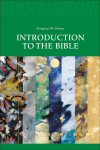
Introduction to the Bible is the indispensable prologue to the entire series of the New Collegeville Bible Commentary. Dividing the contents into two parts, Gregory W. Dawes describes how the Old and New Testaments came to be put together and explores how their stories have been interpreted over the centuries. In the words of Dawes, this very broad overview of a very complex history offers the general reader a helpful framework within which to begin to understand the Bible. Dawes writes clearly, frequently seasoning his explanations with crisp examples. Introduction to the Bible anchors individual and group Bible study on the solid foundation of basic biblical vocabulary and concepts.
This highly readable guide to the origins of the Biblical writings and to the history of how the Bible has been interpreted provides a rich context for our own informed reading of Scripture. . . . The book is wonderfully well written and greatly helps us to understand the way the Bible has been and is used in the Church, and the way that theology has developed. Readers of Scripture will greatly benefit from this excellent book.
—Paul Trebilco, Department of Theology and Religious Studies, University of Otago, New Zealand
Dawes is a gifted writer. He not only communicates a great deal of information in a short space but also invites the reader on a journey of discovery, which concludes with a sympathetic but not uncritical account of post-modern developments.
—Brendan Byrne, professor of New Testament, Jesuit Theological College, Australia
Highly recommended for novice to intermediate biblical students and scholars.
—Midwest Book Review
Dawes certainly has met his goal of presenting a clear overview of the origins of the Bible and its interpretation. His concise writing style, logical organization, and helpful format devices make this a work suitable for individual and group use.
—WritingWorks
Complementing the highly successful New Testament New Collegeville Bible Commentary, this short book is an indispensable introduction to the entire series.
—Catholic Library World
This is a fine introductory volume to a series that holds great promise for the average reader.
—The Bible Today
Gregory W. Dawes is senior lecturer in both religious studies and philosophy at the University of Otago in New Zealand. He undertook graduate study at the Pontifical Biblical Institute in Rome, where he completed the Licentiate degree, before receiving a PhD from the University of Otago in 1995. He has written several books, including The Historical Jesus Question: The Challenge of History to Religious Authority.
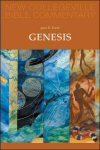
Given the growing interest in family genealogies, in this commentary Joan Cook leads us to appreciate and delight in our ancient and awesome spiritual heritage. We should not be surprised, however, to discover that our earliest spiritual kith and kin were guilty of deceit, marital infidelity, jealousy, and murder. But readers will learn that the God who created the heavens and the earth is also a forgiving and protective God.
With deep knowledge of the ancient Near East and its customs, and with sensitivity to the contours of the biblical stories, Sr. Joan Cook opens up the book of Genesis, passage by passage, in stimulating terms. She shows how Genesis invites us into its narratives of puzzlement, of unbearable pain, and of joyful amazement in living in relationship with God. Delving into Genesis with Cook’s commentary will help readers appreciate the providence of a God who continues to guide us—we who share the same dignity and frailties of our ancestors in faith.
—Robert D. Miller II, associate professor of Old Testament, The Catholic University of America
Joan Cook gives us a clear explication of the complex interwoven stories of Genesis. She highlights the character traits of these pioneers of our faith, follows the threads of various themes throughout the book, and relates the details to ancient Near Eastern culture. An enlightening book.
—Irene Nowell, OSB, adjunct professor of theology, St. John’s University School of Theology
Joan E. Cook, SC, teaches Scripture at Georgetown University in Washington, DC. She is author of Hannah’s Desire, God’s Design and Hear, O Heavens and Listen, O Earth: An Introduction to the Prophets, which won a first-place Catholic Press Association award in 2007. Cook has also written numerous articles on biblical women and biblical prayer.
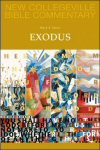
The Exodus experience is central to both Jewish and Christian traditions. Biblical scholar Mark Smith guides readers through the names and terms of Exodus, as well as its textual difficulties—showing us how this ancient text is also “today's story, calling readers to work against oppression and to participate in a covenant relationship with one another and God.”
Just as Moses guided the people through the wilderness, so Mark S. Smith guides the reader through the biblical story that describes this adventure. He expertly uncovers this story’s place in the literature of the Ancient Near East, its continued importance in the religious thinking of the Jewish people, its impact on Christian religion, and its value as a metaphor of the reader’s own journey through life. Once again Exodus stands out as evidence of God’s compassionate concern for the needy of our world.
—Dianne Bergant, CSA, professor of biblical studies, Catholic Theological Union
Smith’s writing is so clear and engaging that the wealth of his scholarship is easily absorbed. The questions that lead into the various sections help the reader focus. The blend of scholarship and spirituality is flawless. An excellent commentary on this significant biblical book.
—Irene Nowell, OSB, adjunct professor of theology, St. John’s University School of Theology
Mark S. Smith is Skirball Professor of Bible and Ancient Near Eastern Studies at New York University. He has served as visiting professor at the University of Pennsylvania, the Hebrew University in Jerusalem, and the Pontifical Biblical Institute in Rome. Smith was elected vice president of the Catholic Biblical Association in 2009. Among his other books are The Early History of God, God in Translation, and The Pilgrimage Pattern in Exodus.
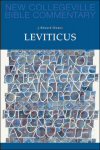
What are we as contemporary readers to make of such a strange book as Leviticus? How can we possibly relate to the kosher laws of clean and unclean foods? Who would want to dine on camel, order eagle or stork, and munch on grasshoppers and crickets?
In this informative and inspiring commentary, J. Edward Owens shows us that behind the seemingly antiquated rituals of Leviticus, there is one theme that permeates throughout: “Sanctify yourselves and be holy; for I, the LORD, your God, am holy.” Owens frequently makes connections between Leviticus and the New Testament. Just as Mary, Jesus, and the apostles observed many of the rules of Leviticus, so too are they relevant for us today. Leviticus can help us as we seek to renew the reverence and wonder in our worship and work—and thereby grow in the sanctity and holiness of God.
Fr. Owens’ commitment to heightening present-day appreciation of the rituals, laws, and concern with holiness of this biblical book is evident on every page. He consistently links Leviticus with the whole of Sacred Scripture, both Old and New Testaments, and with the way faith is embodied in worship and living today.
—Katherine M. Hayes, professor of Old Testament, Seminary of the Immaculate Conception, New York
In this commentary on Leviticus, Edward Owens takes a difficult and antiquated book and makes it brilliantly accessible to contemporary readers. Through careful and detailed analysis, Owens draws out the timeless lessons and values embedded in Leviticus and helps readers appreciate not only the literary artistry of the book but also the many rich traditions of the Jewish faith and culture.
—Carol J. Dempsey, OP, professor of theology, University of Portland, Oregon
This commentary underscores two major themes found in Leviticus: holiness, which means being set apart, and the presence of God in the midst of the people. Owens argues that since holiness is an intrinsic characteristic of God, and since God dwells in the midst of the people, the people must be holy as well. He shows how Leviticus provides a way of life that can accomplish this.
—The Bible Today
J. Edward Owens, OSsT, is currently minister provincial of the US Province of Trinitarians. Previously, he was a professor of biblical studies at St. John’s Seminary in California and then Oblate School of Theology in Texas. He has written numerous articles in academic and pastoral publications, including The Bible Today, Human Development, and The Catholic Biblical Quarterly Monograph Series.
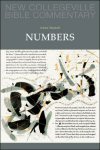
Sister Irene Nowell admits that the book of Numbers “rarely makes the top ten list of favorite biblical books.” But through her insightful interpretations and practical reflections, readers will gain a new and positive appreciation of the text. With Nowell, readers will relish the harassment and humor of the prophet Balaam and his talking donkey in chapters 22–24. We too are blessed by this delightful and ingenious God who communicates through a loquacious animal. This same God lives and moves with us, meets our needs as we wander through our personal and communal wilderness, defends us against the enemies of our sinfulness better than we can ever do in our weakness and fickleness, and eventually brings us to our promised place of glory.
Sr. Irene brings a refined liturgical sensibility along with well-honed pedagogical skills to her careful explication of how the sanctuary shapes the identity and experience of the Israelites on their journey through the wilderness to the Promised Land.
—Dale Launderville, OSB, professor, Saint John’s University School of Theology and Seminary, Minnesota
. . . Sister Irene Nowell helps readers understand the book’s principal motifs: the presence of God in the midst of Israel, the achievements and failures of Moses and Israel, the significance of worship, and Israel’s attitude toward the nations. Her commentary opens her readers’ eyes to Israel’s fascination with its God.
—Leslie J. Hoppe, OFM, provincial minister, Assumption Province
In this commentary, Irene Nowell offers an accessible and straightforward exposition on the book of Numbers. Well aware of the book's textual intricacies, Nowell guides readers through Numbers from Mount Sinai, through the wilderness, and to Transjordan. . . . This is a lovely invitation to learn from biblical challenges of life in community and God.
—Mark S. Smith, professor of Bible and ancient Near Eastern studies, New York University
Sr. Irene accomplishes a compelling biblical invitation. Her clear focus and lucid exposition will allow you to follow the shaping of a people.
—Benedictines
Irene Nowell is a member of the Order of Saint Benedict and is an adjunct professor of theology at Saint John’s School of Theology and Seminary.
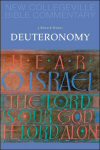
Deuteronomy forms the foundation for much of the Old and New Testaments. It provides an overview of the Exodus experience, reminding the Israelites that the Lord is the one who formed them, brought them out of Egypt, and provided them with the Promised Land. In this commentary J. Edward Owens highlights the key motifs and themes in this book of instruction: land, the theologies of love, remembering/forgetting, time, retribution, the Divine Name, the Lord as warrior, the Ten Commandments, and the great Shema. Deuteronomy reminds us that we are a communal people who are called to always remember the love of the Lord.
With clarity and skill, Edward Owens unpacks the book of Deuteronomy and mines the historical depth and rhetorical artistry of an ancient text. Owens’ lucid analysis offers readers many new and rich insights and helps us to see how this biblical text can have a positive and transformative effect on life today.
—Carol J. Dempsey, OP, professor of theology, University of Portland, Oregon
It is a valuable introduction to the complex matters involved in the book of Deuteronomy. It is engaging, nontechnical, clearly organized and attentive to the beginning student. The commentary can serve as an introductory textbook for teachers, students and pastoral ministers.
—J.L. Manzo, assistant professor of Old Testament, St. John’s Seminary
J. Edward Owens , OSsT, is currently Minister Provincial of the US Province of Trinitarians. Previously, he was a professor of biblical studies at St. John’s Seminary in California and then Oblate School of Theology in Texas. He has written numerous articles in academic and pastoral publications, including The Bible Today, Human Development, and The Catholic Biblical Quarterly Monograph Series.
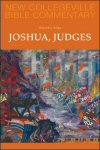
The books of Joshua and Judges provide religious perspective on Israel’s successes and failures from the time that Joshua led the Israelites after Moses’ death until the rise of the monarchy. The stories of these two books show how the God of Israel still guides the life of his people.
In this rich and insightful commentary, Roland Faley draws out the Deuteronomistic thesis in Joshua and Judges—a people of faith, even if they wander, cannot fail.
Roland J. Faley (1930–2014), TOR, was a recognized author and Scripture scholar. He entered the Third Order Regular Franciscans in 1948, and professed his solemn vows in 1952. He was ordained in 1956 and received a Licentiate in sacred theology from the Catholic University of America in 1957 and one in sacred Scripture from the Pontifical Biblical Institute in Rome in 1959. He held many positions during his life of service, wrote numerous books, and received many awards and honors.
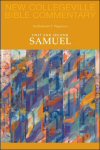
First and Second Samuel tell the story of the beginnings of monarchy in ancient Israel. These two powerful narratives present many great figures of biblical history—Samuel, Saul, and David—and explore the complex interaction of historical developments and human fidelity under God. In the books of Samuel, characters interact to influence and persuade, to express motivation and desire, and to shape the reader’s understanding of the issues that faced the Israelites as they responded to God’s invitation to covenant. Through the medium of story, the reader shares in the perennial struggle to discover, in the midst of personal and political conflict, God’s ways for humanity.
This commentary combines wealth of biblical scholarship with depth of perception and clarity of communication.
—Ciarán O’Callaghan, CSsR, Dublin, Ireland
. . . readers are led to reflect on how one comes to recognize God’s will and how, even though humans misperceive and make mistakes, God ‘corrects their sins and rectifies their consequences.’
—Elizabeth Nagel, SSD, professor, department of biblical exegesis and proclamation, Mundelein Seminary
Feidhlimidh T. Magennis is a priest of the Diocese of Dromore, Ireland. After completing his License in Sacred Scripture at the Pontifical Biblical Institute in Rome, he taught in Ireland and Canada. He is currently a principal lecturer in religious studies at St. Mary’s University College in Belfast.
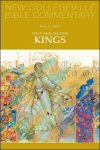
The books of Kings, though in many ways foreign to the twenty-first century, still resonates with contemporary experience. Viewing Israel’s history through the theological lens of action—it raises an array of questions. What constitutes loyalty? What behaviors exact justice? What are the demands of being in a covenant relationship with God? What does it mean to be faithful to that relationship? What risks are we willing to take? How do we pray? Where do we look for the power of God? The insights gleaned from engaging these questions can shed light on our contemporary lives.
Alice Laffey has produced a completely new commentary that is clear, insightful, and accessible to the undergraduate or nonspecialist alike.
—Mary Kate Birge, SSJ, associate professor of theology, Mount St. Mary’s University
Students of the Bible will come away from this commentary with a greater knowledge of the history of Israel and Judah and a greater appreciation of the role of theology in understanding that history.
—Pauline Viviano, associate professor of theology, Loyola University Chicago
This study is a historical and literary gem.
—Carol J. Dempsey, OP, professor of theology, University of Portland, Oregon
Alice L. Laffey is associate professor in the department of Religious Studies at the College of the Holy Cross in Worcester, Massachusetts. Trained in the modern historical-critical study of the Deuteronomistic history, she has expanded her study of the Old Testament to include postmodern feminist and ecological approaches.
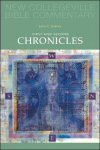
This commentary highlights the special character of First and Second Chronicles by pointing out subtle ways in which the chronicler changes the story of Israel. Many of these slight changes in wording reflect theological shifts in the post-Exillic era. The chronicler sees a need for a strong spiritual center that is clearly located in the Jerusalem temple and its life of worship and prayer. Alienated northern tribes may enter this religious world by participating in temple worship. New and original materials describe the services and the roles of Levites and priests at the temple. Kings foster worship and demonstrate a spirituality of repentance. Israel can again become a people united if all join together in worship. To the discouraged, this history offers hope.
This commentary presumes no specialized knowledge and is ideal for anyone wishing to delve more deeply into these important but often neglected books.
—Stephen J. Binz, author, Introduction to the Bible: A Catholic Guide to Studying Scripture
John Endres loves Chronicles and leads us to an affection for these books too. His clear explanation of the meaning of the long introductory genealogy gives us reason to read these chapters we ordinarily (admit it!) skip. Through the rest of the commentary we not only find the history but we realize the significance of post-exilic prayer and the joy that accompanies it. Everywhere Endres gives careful attention to the literary style, the themes, and the relationship of Chronicles to Samuel and Kings.
—Irene Nowell, OSB, adjunct professor of theology, St. John’s University School of Theology
John C. Endres, SJ, has taught Old Testament and Hebrew Bible at the Jesuit School of Theology of Santa Clara University since 1982. He was chief editor of Chronicles and Its Synoptic Parallels in the Books of Samuel, Kings, and Related Biblical Texts. He also writes and teaches on the Psalms, the deuterocanonical books, Dead Sea Scrolls, and the Book of Jubilees.
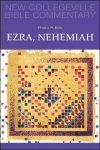
The books of Ezra and Nehemiah relate the return of the Jewish exiles from Babylon during the rule of the early Persian kings. For a long time, Christian exegetes characterized these books and Judaism of the post-exilic age as narrow and nationalistic. This interpretation led to a separation of post-exilic Judaism from its pre-exilic Israelite roots that allowed for a supersessionist reading of the Old Testament based on perceived deficiencies in the religious views of the post-exilic era.
Informed by recent advances in our knowledge of the Persian Empire, this commentary demonstrates that Ezra and Nehemiah offer a compelling story of a people’s attempt to reassemble the fragments of their heritage as they face the future in a greatly changed world.
Clearly written in a style that maintains the interest of the reader, this commentary succeeds in making an often obscure section of the Bible a lively, relevant and fascinating text. Highly recommended for clergy and laity alike.
—Lowell K. Handy, indexer-analyst, American Theological Library Association
Erudite and accessible, this commentary addresses the numerous challenges that arise when one reads Ezra and Nehemiah closely and takes seriously the books’ historical context, the wake of the Babylonian exile.
—Richard J. Bautch, associate dean, School of Humanities, St. Edward’s University
Thomas M. Bolin is associate professor of religious studies at St. Norbert College in De Pere, Wisconsin. His research focuses on ancient Israelite history and religion, wisdom literature, post-Exillic texts, and theological hermeneutics. He is the author of Freedom Beyond Forgiveness: The Book of Jonah Re-Examined
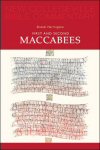
These accounts of the Maccabean revolt, by which the sons of Mattathias reclaimed the temple of Jerusalem, tell an important story of the founding of the Jewish people. The books of First and Second Maccabees are also important for Christians, as in them is told how the Jewish people established the political and religious culture into which Jesus was born. The martyr stories in First and Second Maccabees inform the early Christian martyrdoms, and the books are written in Greek, the language in which the Jews of Jesus’ time read the Scriptures. As author Daniel J. Harrington notes, without the Maccabees “the fate of Judaism (and with it Christianity and Islam) was uncertain.”
Harrington expertly examines these deuterocanonical books, providing the necessary historical information that will open the meaning of the text to those less acquainted with these particular stories. This is a first-rate commentary.
—The Bible Today
This remarkably clear and concise commentary on 1 and 2 Maccabees doubles as an excellent brief introduction to the history of the Maccabean period
—Karina Martin Hogan, associate professor of theology, Fordham University
With First and Second Maccabees, Daniel Harrington, SJ, provides a lucid, concise guide that illumines two very challenging deuterocanonical texts.
—Kelley Coblentz Bautch, associate professor of religious and theological studies, St. Edward’s University
Daniel J. Harrington (1940–2014) served as professor of New Testament and chair of the biblical studies department at Boston College School of Theology and Ministry. He was a member of the Society for Jesus and editor of New Testament Abstracts. He wrote several books, including Invitation to the Apocrypha.
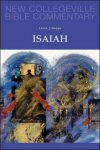
The book of Isaiah uses both prose and poetry to engage readers in a drama of great emotion and intensity. Although the circumstances under which this book took its present form remain in scholarly dispute, this commentary highlights its larger purpose—to provide the people of Judah and Jerusalem with hope for the future and the will to re-embrace their ancestral religious traditions.
Leslie Hoppe assumes the composite character of the books and approaches the work as a whole with its own literary and theological integrity. Unlike many other contemporary commentaries on the book of Isaiah, Hoppe divides the book according to literary shape rather than the history of its composition. With this approach, we recognize that the book of Isaiah is an expression of faith in the Holy One of Israel and in the future of Jerusalem, both of which have decisively shaped the faith of Jewish and Christian believers over the centuries.
Readers of this commentary will find an enriching analysis of this masterpiece of prophetic literature.
—Abbot Gregory J. Polan, OSB, Conception Abbey
This commentary is a delight to read. Hoppe’s clear prose provides the best biblical scholarship by someone who knows the historical context of Israel’s monarchy in format that is perfectly aimed for an educated lay audience.
—Corrine Carvalho, professor of theology, University of St. Thomas
Leslie Hoppe’s commentary on Isaiah emphasizes the unifying themes, and the resonance of Isaiah’s prophecies in the New Testament. It is clear, concise and reliable. An excellent introduction for church groups.
—John J. Collins, Holmes Professor of Old Testament, Yale Divinity School
Leslie J. Hoppe, OFM, served on the faculty at Catholic Theological Union for 24 years, and remains an adjunct professor. He also serves as the provincial minister of the Assumption Province Franciscans. He has written several books on biblical studies and archaeology, including The Holy City: Jerusalem in the Theology of the Old Testament. He is a former editor of The Bible Today and currently serves on its editorial board.
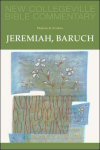
In Jeremiah, Baruch, Pauline A. Viviano insightfully explores and explains these two challenging and important books of Scripture.
The unrelenting doom that occupies much of the book of Jeremiah is offset by God’s refusal to totally abandon the people of Judah. This refusal to let go of the people is given its greatest expression in a New Covenant which lays the foundation for humanity's enduring relationship with God. Meanwhile, The book of Baruch presents several ways for the people of Israel to deal with the destruction of their country and exile from their land.
This is a first-rate contribution to the commentary series.
—Dianne Bergant, CSA, professor of biblical studies, Catholic Theological Union
This book is an excellent guide to lead us securely through the complexities of Jeremiah and the poetic beauty of Baruch.
—Irene Nowell, OSB, adjunct professor of theology, St. John’s University School of Theology
I recommend Viviano’s commentary to seasoned biblical scholars as well as those who are novices in their study.
—Sallie Latkovich, CSJ, department of biblical language and literature, Catholic Theological Union
Pauline A. Viviano is an associate professor of theology at Loyola University Chicago. She received her doctorate in biblical languages and literature from St. Louis University. Besides articles in academic and popular journals, her publications include reading guides for the books of Joshua, Judges, First and Second Samuel, First and Second Kings, and Ruth for the Catholic Study Bible published by Oxford University Press.
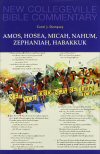
These six prophets proclaim powerful messages about judgment and the sovereignty of God. Amos challenges hypocrisy and injustice. Hosea’s marriage symbolizes the covenant between God and Israel, moving from love to separation and then reunion. Micah, Nahum, and Zephaniah condemn corrupt leadership, injustice to the poor, and worship of false gods. Habakkuk reminds all to rely on God, who will punish the evil and defeat chaos. Flowing through all these calls to be a better people is the unfailing promise of a faithful and forgiving God.
Dempsey’s characterization of each prophet is distinctive, intense, informative. She provides useful outlines and study aids, apt characterization, perceptive commentary, highlighting the specific issues of ethics and worship which kept these preachers awake by night and engaged by day.
—Barbara Green, OP, professor of biblical studies, Dominican School of Philosophy and Theology, Graduate Theological Union
. . . Carol Dempsey brings a critical and refreshing theological perspective to the interpretation of the prophetic messages which provides helpful insights to understand their relevance in addressing some contemporary contexts as well.
—Ahida E. Pilarski, associate professor of biblical studies, Saint Anselm College
Carol J. Dempsey, OP, is professor of theology at the University of Portland, specializing in biblical studies. She has a PhD from Catholic University of America. She is the author of several books, including Isaiah: God’s Poet of Light and Justice: A Biblical Perspective. She is also the lead editor of the Theology in Dialogue series, and is on the editorial board for The Journal of Catholic Higher Education and Dominican Studies.
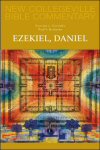
The books of Ezekiel and Daniel provide some of the most memorable stories and images of the Old Testament.
Ezekiel, the wild prophet of the Babylonian exile, gave us images of the blazing wheeled throne of God leaving Jerusalem and the valley of dry bones that only God could restore to life. Struggling to prove his authenticity as a prophet, Ezekiel gives hard messages to the people of Israel that predict the fall of Jerusalem and punishment of all the nations. At the heart of his fiery speech and actions, however, is someone trying to explain how Jerusalem could fall and Israel could lose the Promised Land. In the end, there can be no mistake about his message of God’s power and the cost of Israel’s unfaithfulness.
The prophet Daniel’s message balances that of Ezekiel’s, offering stories of God’s faithfulness to those who keep the law. The dramatic stories of the three men in the fiery furnace and Daniel in the lion’s den, as well as the account of Susanna and the elders, show God's saving power to those who are faithful. Daniel's message is one of hope for a people living under severe oppression during and after exile. Combining storytelling, prophecy, and apocalyptic, this book puts history in the context of God’s larger plan for humanity.
This volume in the NCBC series is a real gem. . . . These commentaries skillfully portray the historical situation of the writers and tease out of the rich symbolism a theological message for those in distress. Each commentator brings a wealth of study and knowledge to the text and presents it so clearly and subtly that we readers can engage in an interpretation for our own time.
—John Endres, SJ, professor of Sacred Scripture, Jesuit School of Theology of Santa Clara University
This fine, intelligible, reliable commentary will be extremely helpful in helping ordinary Christians and their pastors to find their way into the mysterious worlds of Ezekiel and Daniel.
—John Goldingay, professor of Old Testament, Fuller Seminary
Corrine L. Carvalho is professor of theology at the University of St. Thomas in St. Paul, Minnesota, and director of the University of St. Thomas Luann Dummer Center for Women. She serves as president of the Society of Biblical Literature’s upper Midwest region and is active in the Catholic Biblical Association. She is the author of Encountering Ancient Voices and Primer on Biblical Methods.
Paul Niskanen is assistant professor of Old Testament at the University of St. Thomas, St. Paul, Minnesota. He is also the author of The Human and the Divine in History: Herodotus and the Book of Daniel.
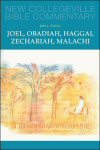
These books, from what are often called the 12 prophets, continue to recount the story of the return from Babylonian exile. They speak with immediacy and power to the generation that was responsible for writing down and organizing the Hebrew Scriptures and founding Judaism as a religion, not just an ethnic identity.
These post-Exillic prophets affirm the many traditions of the people of Judah and Israel, who are still reeling from exile, offering them hope and direction. They promise that God’s justice will include punishment of their enemies and a full restoration of God’s people.
To these books John Collins brings a historian’s perspective, acute analytic gifts, and expository clarity. He is particularly qualified to explain the apocalyptic and ‘early apocalyptic’ features of the books, which have often baffled earlier interpreters.
—Richard Clifford, SJ, professor of Old Testament, Boston College
. . . [John J. Collins] does a great service to readers by discussing the major ideas in these biblical works, such as prophecy and apocalyptic as well as the symbolism of the messianic king and the Jerusalem Temple. This book is most highly recommended.
—Mark S. Smith, professor of Bible and ancient Near Eastern studies, New York University
John J. Collins is Holmes Professor of Old Testament at Yale Divinity School. He was a professor of Hebrew Bible at the University of Chicago from 1991 until his arrival at Yale Divinity School in 2000. He has published widely on the subjects of apocalypticism, wisdom, Hellenistic Judaism, and the Dead Sea Scrolls. His books include the commentary on Daniel in the Hermeneia series, The Apocalyptic Imagination, and Between Athens and Jerusalem. He has served as editor of the Journal of Biblical Literature and as president of both the Catholic Biblical Association and the Society of Biblical Literature.
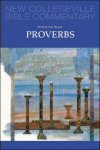
Every culture finds ways to pass along its wisdom from one generation to the next. Old Testament Wisdom literature—comprised of the books of Proverbs, Job, Ecclesiastes, Sirach, and Wisdom—raises the big questions for the people of Israel: Why do the righteous suffer? Why do we die? What is the meaning of life?
The book of Proverbs organizes memorable sayings that lead to insight and understanding about the world that can inform the way we live. Speaking universally of the human condition, it paints a poetic portrait of wisdom as it guides members of the community, especially the young, in how to get along in life.
Katherine Hayes has captured the essence of this book, explaining how the simple proverbs it comprises deal with the human choices that are the warp and woof of everyday life. Her portrayal of Woman Wisdom reveals a figure that stirs the imagination of both women and men.
—Dianne Bergant, CSA, professor of biblical studies, Catholic Theological Union
Katherine Hayes has written a truly accessible commentary on the book of Proverbs that will be of great benefit to biblical scholars and inquiring laity alike. . . . The extensive study and reflection questions are especially helpful in making this ancient text relevant for modern readers.
—John L. McLaughlin, University of St. Michael’s College
Hayes has captured the essence of this biblical book, explaining how the simple proverbs it contains deal with the human choices that are the warp and woof of everyday life.
—The Bible Today
Katherine M. Hayes is professor of Sacred Scripture at the Seminary of the Immaculate Conception in Huntington, New York, where she has taught since 1997. Since 2012, she has also taught at St. Joseph Seminary in Yonkers, New York. She is author of "The Earth Mourns": Prophetic Metaphor and Oral Aesthetic and articles and reviews in a variety of scholarly and pastoral publications, including Catholic Biblical Quarterly.
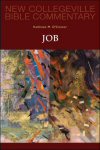
The book of Job is a vivid testimony of pain, a plea for justice, and a wrenching theological debate. Central to this debate are questions about the roles that God and humans play in causing human suffering and whether divine-human relationships can proceed in the midst of overwhelming anguish. Like a riddle, the text grasps readers’ minds and emotions, inviting them to participate in Job’s story and to work toward their own solution to the dilemmas of both Job and his friends.
This work constitutes an important contribution to the landscape of historiographical research concerning the relationship of women to Christian worship and their experience of liturgy.
—Antiphon
. . . splendid, careful, theologically and historically insightful writing. . .
—New Theology Review
. . . an important contribution towards the recognition of women’s liturgical studies as a distinct discipline.
—Yearbook of the European Society of Women in Theological Research
Kathleen O’Connor has produced a beautiful guide to Job’s pain and plea for justice. . . . [Her] moving presentation will draw readers into Job’s experience and provide them with a deep, thoughtful resource for reflecting on their own questions of suffering and justice. Clear and accessible, O’Connor’s work on Job is inspiring. A wonderful achievement.
—Mark S. Smith, professor of Bible and ancient Near Eastern studies, New York University
Kathleen M. O’Connor is William Marcellus McPheeters Professor of Old Testament at Columbia Theological Seminary. She is the author of The Wisdom Literature, Lamentations and the Tears of the World, and Jeremiah: Pain and Promise.
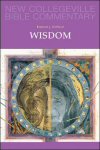
In the book of Wisdom, we find the literary voice of Solomon, the model king and seeker of wisdom sharing his meditations. Concepts from Greek philosophy are integrated into Jewish tradition to present new insights into how wisdom can be both a quality of God and a human characteristic. Three affirmations in this lyrical book especially resonate for modern Christians: the kingdom of God means that God’s justice actually rules the world—God is Lord of the universe, not just the God of heaven. He is engaged in human history and dwells with the human race.
Richard Clifford, SJ, is an experienced and authoritative commentator on biblical wisdom. His commentary on Wisdom reads it in its Hellenistic context but also draws out its implications for life in the modern world. An excellent, reliable guide
—John J. Collins, Holmes Professor of Old Testament, Yale Divinity School
Clifford has made a book steeped in philosophy understandable to the average reader.
—Dianne Bergant, CSA, professor of biblical studies, Catholic Theological Union
This new commentary has all the signs of what we expect from its distinguished author-deep learning, a keen sensitivity to the theological message of the material he interprets, a fine ear for intertextual resonances, and a rare gift for clear and accessible communication. The book of Wisdom is a fascinating but under-appreciated product of Hellenistic Judaism. In this concise commentary, it has acquired an ideal commentator. I recommend it highly.
—Jon D. Levenson, Albert A. List Professor of Jewish Studies, Harvard University
Richard J. Clifford SJ, is professor of Old Testament at Boston College School of Theology. He taught biblical studies at Weston Jesuit School of Theology in Cambridge from 1970 to 2008. His doctorate is from Harvard University. He was general editor of the Catholic Biblical Quarterly and is a former president of the Catholic Biblical Association. As well as teaching and lecturing in scholarly circles, he is active in adult education in various New England dioceses.
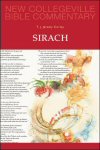
The book of Sirach praises the study of the law, the wisdom of the men of old and their prophecies. Its author is well read and rearticulates traditional Jewish wisdom for his generation, centering it on fear of the Lord, and clearly asserting that wisdom is a gift from God. He encourages his audience to remain steadfast in following the law of Moses rather than following the ways of the dominant pagan Greek culture.
Corley’s familiarity with the vast literature on this fascinating Wisdom book shines through his concise comments. Especially valuable are the many cross references he provides to other parts of Sirach as well as to the rest of Old Testament and even the New Testament. Corley’s work ranks among the best short commentaries available today.
—Alexander A. Di Lella, author, The Wisdom of Ben Sira
Dr. Jeremy Corley is an internationally recognized expert on the Book of Sirach. In this commentary, he provides a compact, but helpful guide to unpacking the riches of this often neglected book, especially its multiple connections with the rest of the Bible and with other ancient literature. He manages to say a great deal in relatively few pages.
—Rev. Christopher Begg, professor of Biblical Studies, The Catholic University of America
Jeremy Corley is vice-president of the International Society for the Study of Deuterocanonical and Cognate Literature and a faculty member at St. Patrick’s College in Maynooth, Ireland.
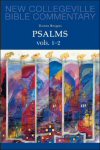
The book of Psalms plays a significant role in the public and private prayer of both the Jewish and Christian communities today, helping to shape the minds and hearts of modern believers. Dianne Bergant examines the theological and historical circumstances from which the psalms originated. She reveals how the psalms were intended for instruction as well as prayer, and helps us experience their lyrical nature. In a fresh encounter with these poems of lament, hymns of praise, and prayers of thanksgiving, readers gain a new appreciation for these ancient texts, remembering that God is “gracious and merciful, slow to anger and abounding in mercy.”
This slim volume admirably fulfills the goal of the New Collegeville Commentary series. Bergant does a superb job of introducing the Psalms to the average reader. She is attentive both to historical and religious interpretations, making this commentary a reliable resource for both prayer and study of this beloved book of the Bible.
—Ronald D. Witherup, superior general, Sulpician Order
Dianne Bergant offers us a succinct commentary on the inspired hymns of ancient Israel. Conscious of expressions and attitudes which might trouble contemporary sensitivities, she explores their deeper insights in order to incorporate them more readily into the prayers and aspirations of modern Christian adults.
—Richard J. Sklba, auxiliary bishop, Archdiocese of Milwaukee
Dianne Bergant is Carroll Stuhlmueller, CP, Distinguished Professor of Old Testament Studies at Catholic Theological Union in Chicago. She earned her MA and PhD in biblical languages and literature from St. Louis University. Bergant served as president of the Catholic Biblical Association of America for the 2000–2001 year, and has been an active member of the Chicago Catholic/Jewish Scholars Dialogue for over 20 years. She has also served as the Old Testament book reviewer for The Bible Today as well as a member of its editorial board, and its general editor. From 2002 to 2005, Bergant wrote the weekly column “The Word” for America magazine. Among her numerous works are the three volumes in The Word for Every Season series.
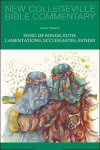
Irene Nowell’s lively and thoughtful exploration of these poetic and powerful books promises to ignite appreciation and understanding in the hearts and minds of readers.
The five books abound with vivid stories of faith. The Song of Songs, dedicated to Solomon, celebrates the wonder of human love. The book of Ruth, a masterpiece of storytelling, tells of two valiant women who move from emptiness to fullness, desolation to redemption. Lamentations, telling of the destruction of Jerusalem, recognizes that the Lord has struck and that only the Lord can heal. Ecclesiastes teaches the futility of vanity and storing up riches. The book of Esther tells the story of a Jewish woman and her uncle who, by their courage and wit, deliver the Jews from threatened genocide.
Gathered together and artfully explored, this volume offers readers a wealth of information to inspire deeper understanding of the human journey and God’s presence in the lives of those who trust in him.
These particular biblical books are important because they deal with such perennial issues as love, marriage, immigration, tyranny, persecution, war and defeat . . . Nowell brings an eye for narrative and poetic detail to deal with difficulties in these texts, to explain unfamiliar customs, and to open up the meaning of these books.
—Tom McCreesh, OP, professor of Old Testament studies, Providence College
Sr. Irene Nowell is an engaging, perceptive, articulate and astute teacher and reader of biblical texts. . . . Her commentaries on the Megilloth display the literary artistry of the text, as well as the theological and spiritual riches to be found in them.
—Abbot Gregory J. Polan, OSB, Conception Abbey
Irene Nowell is a member of the Order of Saint Benedict and is an adjunct professor of theology at Saint John’s School of Theology and Seminary.
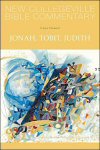
These three colorful books offer gripping stories of how God shows his mercy and accomplishes his will through human actions. Jonah is a reluctant prophet who must be swallowed by a big fish before he delivers his message to Israel’s ancient enemies at Nineveh that they must repent or face doom. Tobit tells of the trials and tribulations of a family, and the power of prayer as God sends an angel to guide Tobit’s son Tobiah on a journey of resolution. In the book of Judith, a simple and courageous widow, rather than an army, saves her people from destruction by a powerful enemy. This rich commentary explores the significant themes of each book, showing that God is intimately involved with the destiny of humankind.
In this learned and readable commentary Sr. Irene Nowell offers a rich combination of historical learning, theological reflection, and spiritual insight. . . . Particularly helpful are the questions for review and topics for discussion for each book which highlight the central themes and suggest ways to apply the text to contemporary life. Highly recommended for parish bible study, lectio divina, and homily preparation.
—Stephen D. Ryan, OP, Dominican House of Studies, Pontifical Faculty of the Immaculate Conception
The concise commentary combines valuable discussion of the religious teaching with fascinating insights into the literary style of the narratives.
—Jeremy Corley, lecturer in Scripture, St Patrick’s College, Ireland
With great sensitivity and thoughtfulness, this commentary explores the challenges facing the many male and female characters, their differing deeds and prayers, and the corresponding help they receive from God. A very accessible and well-written work, most highly recommended for Bible study.
—Mark S. Smith, professor of Bible and ancient Near Eastern studies, New York University
Irene Nowell is a member of the Order of Saint Benedict and is an adjunct professor of theology at Saint John’s School of Theology and Seminary.
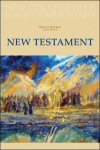
Concise and accessible, this one-volume edition of the New Collegeville Bible Commentary: New Testament allows readers to explore any or all of the books with just one resource alongside their Bibles.
The individual commentaries collected here are written by respected scholars, and they break open the biblical texts in a lively fashion. Readers will be able to engage Scripture more deeply and reflect on its meanings, nuances, and imperatives for living a Christian life in the twenty-first century. This commentary answers the Second Vatican Council’s call to make access to Scripture “open wide to the Christian faithful.”
Yet again Liturgical Press has brought quality biblical scholarship to the pastoral life of the Church. This work draws together the fine individual contributions to the New Collegeville Bible Commentary series and offers them to readers in a convenient and attractive one-volume format. Now pastors, preachers, parish staffs, and simply those who want to draw nourishment from reading and studying the Bible have a first rate, accessible resource at their fingertips.
—Donald Senior, CP, Catholic Theological Union
Liturgical Press has a long and proud history of bringing solid biblical scholarship to a popular readership. . . . This one-volume presentation, edited under the expert guidance of veteran biblical scholar Daniel Durken, OSB, . . . will be especially valuable for parish libraries and on the desk of preachers and liturgists.
—The Bible Today
Daniel Durken, OSB, is a Benedictine monk and priest of Saint John’s Abbey. He taught Scripture and speech classes at Saint John’s University for almost 50 years and served as director of Liturgical Press from 1978 to 1988. He still writes homily hints and daily reflections for the Loose-Leaf Lectionary and is the founding editor of Abbey Banner, the magazine for the relatives, friends, and oblates of the monastic community.
Scripture texts are taken from the New American Bible, which is not included with this commentary. For side-by-side viewing it can be purchased here.
Interested in more commentaries? Take a look at Navarre Bible Old Testament, Standard Edition (7 vols.) and Navarre Bible New Testament, Standard Edition (12 vols.).
Key Features
- Provides a thorough analysis of both Old and New Testaments
- Offers fresh scholarship on each biblical text
- Includes aids for group study and discussion
Praise for the Print Edition
Solid, pastorally sensitive, user friendly, portable—this original series served the needs of thousands of ordinary folks in the pews who wanted to read the biblical texts with the aid of a helpful guide. . . . This new series is a very welcome update to its renown predecessor.
—Catholic Library World
This New Collegeville Commentary will encourage an informed and responsible Christian community in every parish.
—Prairie Messenger
. . . the New Collegeville Bible Commentary series promises to be appreciated and read by a wide range of Bible students.
—Catholic Studies: An Online Journal
This is a fine series that will be a great help to the Catholic community and deserves to have a long shelf life. . . . These attractively printed materials (laced with maps and illustrations) are wonderfully suited for personal and parish study group use.
—The Bible Today
Product Details
- Title: New Collegeville Bible Commentary (2 vols.)
- Series: New Collegeville Bible Commentary
- Series Editor: Daniel Durken
- Publisher: Liturgical Press
- Volumes: 2
- Pages: 2608
- Christian Group: Catholic
- Resource Type: Commentaries
- Topic: Biblical Studies